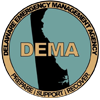State Emergency Response Commission
The Delaware State Emergency Response Commission (SERC), created in response to the federal Emergency Planning and Community Right-to-Know Act (EPCRA) of 1986, is comprised of representatives from various state and local government organizations and industry. The primary focus of the SERC is to enhance state and local emergency response and preparedness capabilities through better coordination and planning.
The members of the State Emergency Response Commission are specified in state law. They represent a wide spectrum of professional and civic viewpoints. The Commission operates under a set of Commission Bylaws.
The Delaware SERC holds quarterly meetings. Members of the public are encouraged to attend. Meetings typically begin at 9:00 a.m., and last approximately two hours. Meetings are posted on the Delaware Public Meeting Calendar.
A Commitment to Public Safety
In the unlikely event a hazardous materials incident were to occur in Delaware, emergency services, government agencies and industry would respond to protect life, property and the environment. This video, hosted by former SERC chair Lewis Schiliro, then Secretary of the Department of Safety and Homeland Security, provides an overview of the commitment to public safety and the protection of first responders in Delaware.
Background
In 1986, the United States Congress Passed the Superfund Amendments and Re-authorization Act (SARA). Title III of SARA is a free standing statute known as the Emergency Planning and Community Right-to-Know Act (EPCRA) with the goal of preventing tragedies such as the 1984 chemical release in Bhopal, India which killed over 2000 people and injured thousands more. EPCRA creates a network for emergency planning and ensures that the public has access to the information and resources to prepare for and protect themselves from releases of hazardous or toxic substances.
One of the first requirements of EPCRA was for each state to create a State Emergency Response Commission (SERC) which would be responsible for implementing and overseeing other requirements of the Act. Once established, each SERC was to designate emergency planning districts and appoint a Local Emergency Planning Committee (LEPC) for each district. Each LEPC has specific duties to fulfill, and the SERC supervises and coordinates those activities. The SERC also receives various reports from businesses that use or store hazardous chemicals, or that experience an emergency release of a hazardous substance, and must establish procedures for receiving and processing requests for information from the public.
In Delaware, an existing state organization, the Commission on Hazardous Materials, was reorganized to form the Delaware State Emergency Response Commission. Each of the three counties (New Castle, Kent and Sussex) and the City of Wilmington have been identified as emergency planning districts, and LEPCs have been appointed.
Committees
Aside from the four Local Emergency Planning Committees (New Castle County, Kent County, Sussex County, and the City of Wilmington), there are five standing committees of the Delaware SERC. When necessary, special committees can be formed to carry out specific duties. All standing committees and special committees report directly to the SERC.
Finance and Budget Committee
Fees ranging from $250,000 to $275,000 are collected each year under the Hazardous Chemical Inventory reporting requirements. Any organization requesting funds must submit a written budget request to the Finance and Budget Committee. The committee reviews the requests and presents them, along with recommendations, to the SERC. Funds are routinely distributed to Delaware’s four LEPCs, DNREC, and Committees of the SERC. Monies not distributed are placed into the SERC Contingency Fund which is used to finance special projects and purchases. Other functions of the Finance and Budget Committee include projecting probable revenues generated by the fee system, and exploring alternate funding sources (such as EPA grants)
Information and Technology Committee
The primary objective of the Information and Technology Committee is to ensure that hazardous material information is made available to emergency planners and responders in a timely manner and in a usable format. The data management approach established by this Committee revolves around Tier II ManagerTM, which is a web-based system that allows facilities to report hazardous chemical inventory data on-line. Facilities using the system can simply update their previous data as necessary and avoid re-entering data. Since Tier II ManagerTM is a web-based, all information entered in the system can be viewed immediately by emergency planners and responders. The committee is responsible for training planners and responders on how to search and retrieve information from the system. The committee also has the responsibility of exploring strategies and developing materials to inform the public through community outreach programs and promote participation in emergency planning and community right-to-know matters.
Planning and Training Committee
The purpose of this committee is to perform planning functions and provide oversight of training activities. Specific responsibilities include establishing goals and objectives that support state and federal EPCRA mandates, developing compliance guidance, reviewing emergency plans submitted by LEPCs, ensuring training requirements are met, developing and coordinating new training opportunities, and oversight of the Hazardous Materials Emergency Preparedness grant.
Decontamination Trailer Committee
This Committee provides oversight of the operations, training, and funding of the Decon trailers provided by the State for deployment in each of the three counties. The Decon trailers provide decontamination services to all emergency response personnel and victims of hazardous materials incidents throughout the State of Delaware or neighboring jurisdictions through the use of trained personnel and adequate equipment. The Committee also ensures the standardization of the Decon trailers, operating procedures, and equipment to maintain the interoperability of Delaware’s hazardous material decontamination capability.
LEPC Oversight Committee
The LEPC Oversight Committee is responsible for providing oversite for the four LEPCs in Delaware and ensuring administrative consistency between the LEPCs. This Committee also maintains and updates, as necessary, the Delaware LEPC Handbook. The Delaware LEPC Handbook outlines the duties and responsibilities of the Delaware LEPCs and ensures these responsibilities are understood by the LEPCs and SERC.








